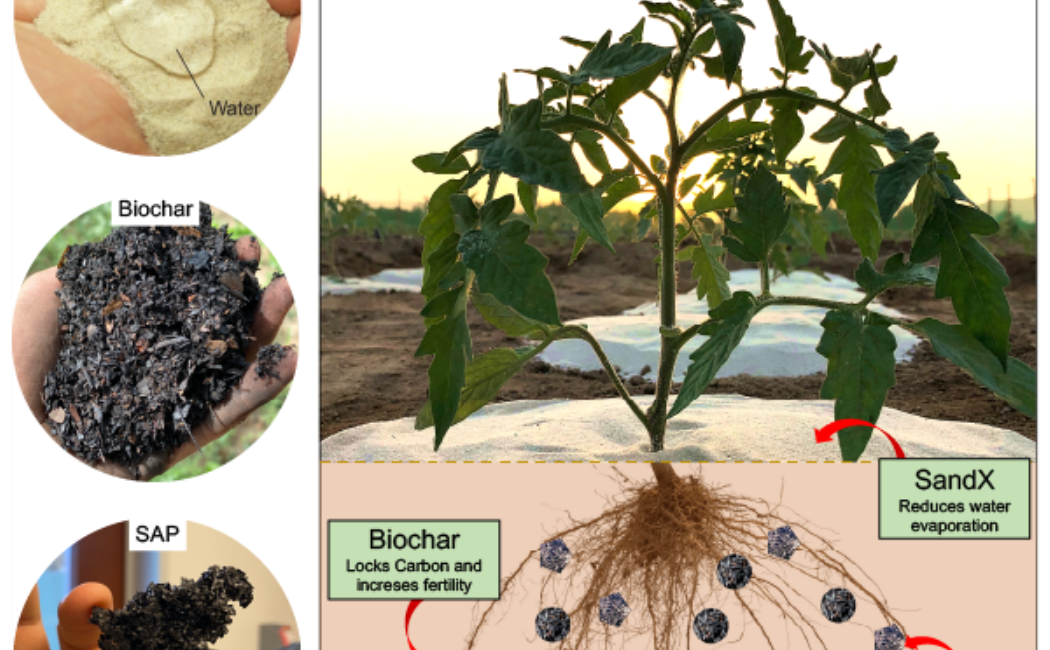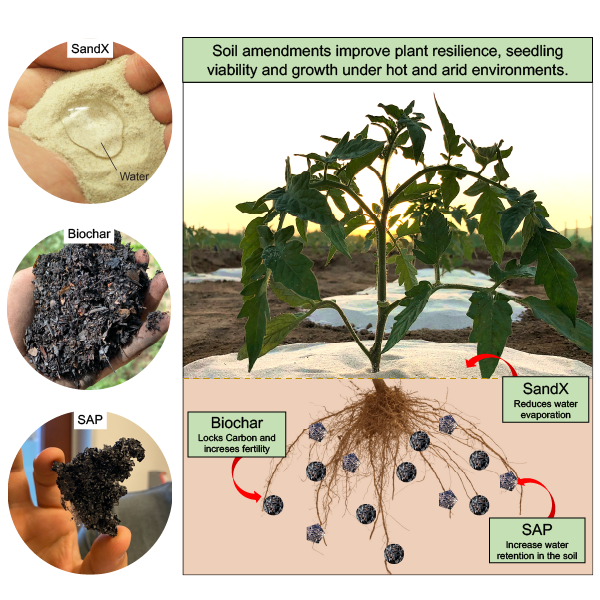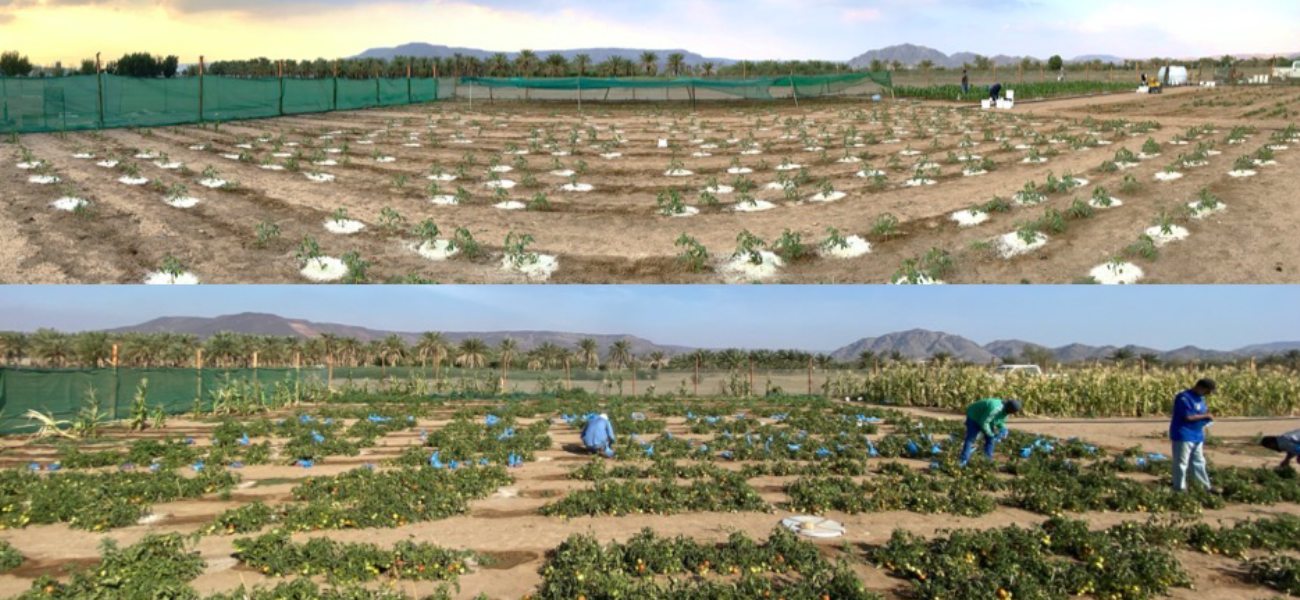
Soil Amendments
Soil amendments for boosting plant growth and capturing carbon in arid lands
The Interfacial Lab (iLab) has been developing soil-amendment technologies for aridland agriculture comprising superhydrophobic sand (SandX), biochar with ultrahigh cation exchange capacity, and superabsorbent polymers (SAP). In hot and dry conditions, these materials boost irrigation efficiency and enhance soil fertility, dramatically improving plant survival and growth under nominal irrigation (Fig. 1).
When applied as a 0.5–1 cm-thick layer on top of moist soil, SandX prevents the capillary rise of water, which insulates soil-moisture from the sun and dry air, also creating a diffusion barrier for water vapor. Biochar is resultant from the pyrolysis of biomass, and it can be exploited for carbon sequestration and soil fertility enhancement. iLab is developing reactors for producing and functionalizing biochar from date palm residues.
SAP is a combination of polymers that can absorb hundreds of times their own weight in water, effectively increasing the soil water holding capacity when incorporated in irrigated soils.

Figure 1 – Summary of iLab’s soil amendments portfolio: SandX, Biochar and SAP.
The Interfacial Lab team has been testing these materials in field trials in Saudi Arabia under real harsh conditions (Fig. 2). We have successfully grown crops and trees over the past years, such as: tomato, barley, wheat, onion, Acacia, Prosopis, mint, among others. Our efforts are guided at helping the Kingdom of Saudi Arabia transition to a greener economy with sustainable agricultural practices.
We believe that our portfolio of soil amendment technologies can greatly strengthen afforestation mega-projects in the region, such as the Saudi Green Initiative, which aim to plant 10 billion trees across Saudi Arabia.

Figure 2 – Field trials in Hada Al Sham, Saudi Arabia.